Once Upon a Time

Brief Synopsis
Cast & Crew
Alexander Hall
Cary Grant
Janet Blair
James Gleason
Ted Donaldson
William Demarest
Film Details
Technical Specs

Synopsis
After staging three flops in a row, Broadway producer Jerry Flynn is in danger of losing his theater because he is unable to pay the $100,000 note that he owes the bank. After his banker, McKenzie, grants him only one week to pay the note, Jerry wanders out into the street, where nine-year old Arthur "Pinky" Thompson and his friend Fatso are playing the harmonica. When Jerry pitches his last nickle over his shoulder for good luck, the boys pocket the coin and offer the producer a peek at Curly, Pinky's dancing caterpillar. Peering into Curly's shoe box, Jerry is amazed to see the caterpillar stand up and begin to wiggle as Pinky plays "Yes Sir, That's My Baby" on the harmonica. Certain that he can build Curly into a celebrity, Jerry offers to buy the insect, but Pinky refuses, claiming that Curly is his friend. Jerry then proposes forming a partnership with Pinky to promote Curly, and the boy accepts. Soon after, Jeanne Thompson, Pinky's sister and guardian, comes looking for her brother. When Jerry gushes his admiration for Curly, Jeanne declares that he is insane and ushers her brother home. Undaunted, Jerry tells Fatso to bring Pinky to his hotel suite the next morning, and there he introduces The Moke, his right-hand man, to Curly. Although Moke is unimpressed with the "dancing worm," Jerry boasts that he will build the caterpillar into a $100,000 investment and directs Moke to bring all the local columnists to his hotel suite. The reporters greet Jerry's tale of "how he found fantasy on the sidewalk" with derision and refuse to peer into Curly's shoe box to see the dancing caterpillar. In the hotel lobby, reporter Brant, Jerry's antagonist, phones his editor to mock Jerry's story. Brant's call is overheard by radio announcer Gabriel Heatter, who is intrigued by Curly's talents and invites Curly, Pinky and Jerry to his office. On his broadcast that night, Heatter relates the story of Pinky and Curly, turning it into a parable about hope. The tale of the boy and the bug inspires the audience, making Curly and Pinky instant celebrities. Among those flocking to see the celebrated insect is Dunhill, a representative from Walt Disney, who offers to buy Curly. Jerry, who has promised Pinky that he would never sell the caterpillar, sets Curly's price at $100,000, the amount that he owes the bank. After Dunhill leaves to present Jerry's offer to Disney, Jeanne arrives, upset about her brother's instant fame, and insists that Pinky immediately return home. As news of the dancing caterpillar sweeps the nation, Jerry and Pinky scheme to win Jeanne's sympathy. Sobbing that he doesn't want to live unless he can continue his partnership with Jerry, Pinky climbs onto a window ledge and threatens to jump. Blaming herself for Pinky's misery, Jeanne relents and allows him to move in with Jerry. Jerry's next challenge comes when a team of lepidopterists dispute Curly's dancing ability. After submitting the caterpillar to the scientists for examination, Jerry instructs Pinky to play "Yes Sir, That's My Baby" on his harmonica. When Curly stands up and begins to sway with the music, the scientists authenticate the insect's musical abilities and demand that he remain in their possession. In response, Jerry accuses the scientists of denying him his bill of rights, thus sparking a nationwide debate over who owns the rights to Curly. Later, as Jerry laments Curly's lack of profitability, Disney calls and agrees to his price. That night, Jerry orders Moke to steal Curly as Pinky sleeps, and although he disapproves, Moke anesthesizes himself with drink and slips into Pinky's room. Pinky awakens just as Moke is about to snatch Curly's shoe box, and after Moke passes out on the bed, Pinky takes Curly and runs away. Jerry, meanwhile, has taken Jeanne out to dinner, and when he brings her home, he finds Pinky waiting for him. After denouncing Jerry for trying to steal Curly, Pinky hides the caterpillar. When Jerry slaps Pinky in anger, the boy hands Curly's box to him. Realizing that he has betrayed the boy, Jerry returns the shoe box, but when Pinky opens it, Curly is gone. As the city searches for the missing caterpillar, Pinky blames Jerry for Curly's loss and refuses to speak to him. Jerry is so distraught that even McKenzie's offer to let him keep the theater fails to cheer him. To patch up their friendship, Moke visits one of Curly's fan clubs and asks the boys to help reconcile Jerry and Pinky. After the boys surround Jerry and escort him to Pinky's apartment, Jerry sits at the piano and begins to play "Yes Sir, That's My Baby." When a butterfly takes flight from inside the piano, Jerry realizes that it must be Curly. Just then, Pinky enters the apartment, and when Jerry tells him the news, he joyfully welcomes Curly home. After fluttering around the room, Curly flies out an open window, and Jerry and Pinky, recognizing that the butterfly must now be free, bid their friend farewell.

Director

Alexander Hall
Cast

Cary Grant

Janet Blair

James Gleason
Ted Donaldson

William Demarest

Howard Freeman
Art Baker
Paul Stanton
Mickey Mcguire
Mary Currier
Anne Loos
Ed Gargan
Harry Strang

Billy Bevan
Emory Parnell
Cliff Clark
Torben Meyer
William Austin
Lane Chandler
Esther Howard
Eddie Bruce
Nolan Leary
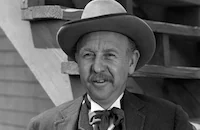
Charles Arnt

John Abbott

Ian Wolfe
Jack Lee
Don Barclay
Fred Howard
Alex Melish
George Davis
William Gould
Pedro De Cordoba
Vaughan Glaser
Erwin Kalser
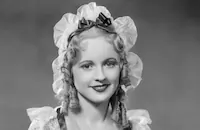
Lucille Brown
Garry Owen

James Flavin
Harrison Greene
George Anderson
John Dilson

Emmett Vogan
Vernon Dent
Nelroy Ashley
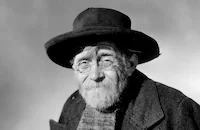
Christian Rub
Robert Williams
Sybil Merritt
June Millarde
Thelma Joel
Vi Athens
Marilyn Johnson
Ronnie Rondell
Robert Tafur
Lionel Braham
Joseph J. Greene
Murray Alper
Joanne Frank

Iris Adrian
Vivian Oakland
John Kelly
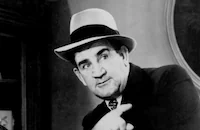
Tom Kennedy
Spec O'donnell
John Tyrrell

Pierre Watkin
Alan Stone
Eula Guy
Phyllis Kennedy
Sandra Coles
Grace Lenard
Pauline Drake
Syd Saylor

Ray Teal
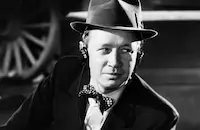
Eddie Acuff
Tom Dugan

Buddy Yarus

Jeff Donnell

Fern Emmett
Ida Moore
Mary Field

Barbara Pepper
William Yip
Jung Lim
Ruth Warren
Charles Coleman
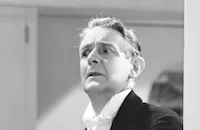
Leonard Carey
Norval Mitchell
Charles Waldron
Walter Pietila
George Bruggeman
Eddie Hall
Frank Hagney

Clyde Fillmore
Kirk Alyn
Walter Fenner
Bill Chaney
Lawrence Lathrop
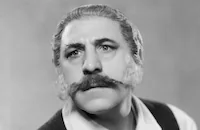
Henry Armetta
Jack Norton
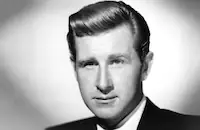
Lloyd Bridges
George Neise
Robert Lowell
Gary Bruce
George Eldredge
Dick Gordon
Freeman Wood
Cy Ring
Alameda Fowler
Nell Keller
Cecil Weston
Lewis Wilson

Byron Foulger
Charles Bates
Hugh Maguire
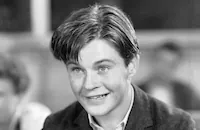
Tom Brown

Gary Gray
Isabel Withers
Crew
Lionel Banks
Norman Corwin
Walter Donaldson
Louis F. Edelman
Irving Fineman
Jack Goodrich
Gene Havlick
Lucille Fletcher Herrmann
Frederick Hollander
Edward Jewell
Gus Kahn
Lewis Meltzer
William Mull
Franz F. Planer
Robert Priestley
Oscar Saul
Milton Stiefel
M. W. Stoloff

Film Details
Technical Specs

Articles
Once Upon a Time
Columbia had acquired the rights to the radio play in 1942, and announced that Humphrey Bogart and Rita Hayworth would star. By January of 1943, Brian Donlevy had replaced Bogart, but soon after Hayworth was suspended because she refused to appear in the film. Production on Once Upon a Time finally began in September, with Grant and Janet Blair in the leading roles, and ten-year-old Ted Donaldson making his film debut as Pinky.
What worked as a half hour radio play was less successful as a feature film. Expanding the fanciful premise that played neatly in its half-hour form to a 90-minute film not only added little to the story, but diluted its impact. The radio play had allowed listeners to use their imagination to see the dancing caterpillar. In the film, only the characters see Curly's act - the viewers never do, and the fantasy seems more earthbound, the whimsy a little forced. On the plus side, there are some excellent performances. Critics singled out James Gleason as Grant's sourpuss sidekick, and had praise for young Ted Donaldson. "His round face and boyish treble do a lot to give it charm," according to Bosley Crowther of the New York Times. Grant's jaunty manner is ideal for the producer, and he has real chemistry with Donaldson, who won a Critics Award for his performance.
Perhaps the best thing to come out of Once Upon a Time was Grant's friendship with Donaldson. The film came at a difficult time in Grant's personal life. He had married Woolworth heiress Barbara Hutton in 1942. They were clearly mismatched, and the union was rocky from the start (they would divorce in 1945). But one of the joys of the marriage for Grant was the opportunity to be a father to Hutton's son, Lance Reventlow. That paternal instinct served him well in his relationship with Donaldson. "From the first day on the set of Once Upon a Time, you made everything easy for me," Donaldson recalled in a letter to Grant in 1979. "You didn't wait for me to be brought to you by my agent or a studio representative. You came over to me and my father and introduced yourself." Grant spent time with the boy, playing games, sharing riddles, and singing the popular nonsense song of the era, "Mairzy Doats." He was also generous as a fellow actor. For one important scene, cinematographer Franz Planer had set up a two-shot of Grant and Donaldson. But Grant told director Alexander Hall that the boy should be the focus of the scene, and he should change it to a closeup of Donaldson. Grant kept in touch with Donaldson, and years later, he attended Donaldson's high school graduation. (Grant also kept up a relationship with Lance Reventlow after his divorce from Hutton.) Grant would not become a father until 1966, when his only child, Jennifer, was born to actress Dyan Cannon, his fourth wife. Late in his life, Grant expressed regret that he had not had more children. Once Upon a Time was not Grant's most successful film, but it provided a cheerful antidote to the grimness of World War II. As the Variety critic wrote, "Once Upon a Time is certainly bizarre - and yet charming. It's unfathomable - and yet intriguing. It is certainly absurd - and yet boxoffice."
Director: Alexander Hall
Producer: Louis F. Edelman
Screenplay: Lewis Meltzer, Oscar Saul, Irving Fineman, based on the radio play "My Client Curly," by Norman Corwin and Lucille Fletcher Herrmann
Cinematography: Franz Planer
Editor: Gene Havlick
Art Direction: Lionel Banks, Edward C. Jewell
Music: Frederick Hollander
Principal Cast: Cary grant (Jerry Flynn), Janet Blair (Jeannie Thompson), James Gleason (The Moke), Ted Donaldson (Arthur "Pinky" Thompson), William Demarest (Brandt), Howard Freeman (McKenzie), Art Baker (Gabriel Heatter), Mickey McGuire (Fatso).
BW-89m.
by Margarita Landazuri

Once Upon a Time
Quotes
Trivia
Notes
The working titles of this film were Curly, My Friend Curly, My Client Curly and Yes Sir, That's My Baby. The picture opens with the following prologue: "Someone told us a story the other day that sounded fantastic. But in a world that is so troubled today and where reality is so grim-fantasy was a welcome relief. Thinking you might feel the same way about it-we're passing this yarn to you. Relax and pull up a chair. Once upon a time-"
News items in the Hollywood Reporter yield the following information about the film's production: In October 1942, Columbia announced that Rita Hayworth and Humphrey Bogart would star in the picture, which was to be scripted by Edwin Justus Meyer and Dale Van Every. Although a January 15, 1942 Hollywood Reporter production chart indicated that production had begun with Bogart, Hayworth and Jess Barker, the project was delayed and filming did not begin again until September 13, 1943. By January 18, 1943 it was announced that Brian Donlevy, who was tired of appearing in war films and wanted to act in a comedy, was to replace Bogart while Bogart took over Donlevy's role in Sahara (see below). Several days later, Columbia suspended Hayworth for refusing to play the female lead in the picture and Donlevy's contract was canceled by mutual consent. Cary Grant then voiced an interest in appearing in the film, which was shelved until late April 1943 when Hayworth returned from her suspension. Janet Blair was eventually cast as the female lead, but in early September 1943 production was delayed because of story problems. This picture marked the screen debut of Ted Donaldson.














